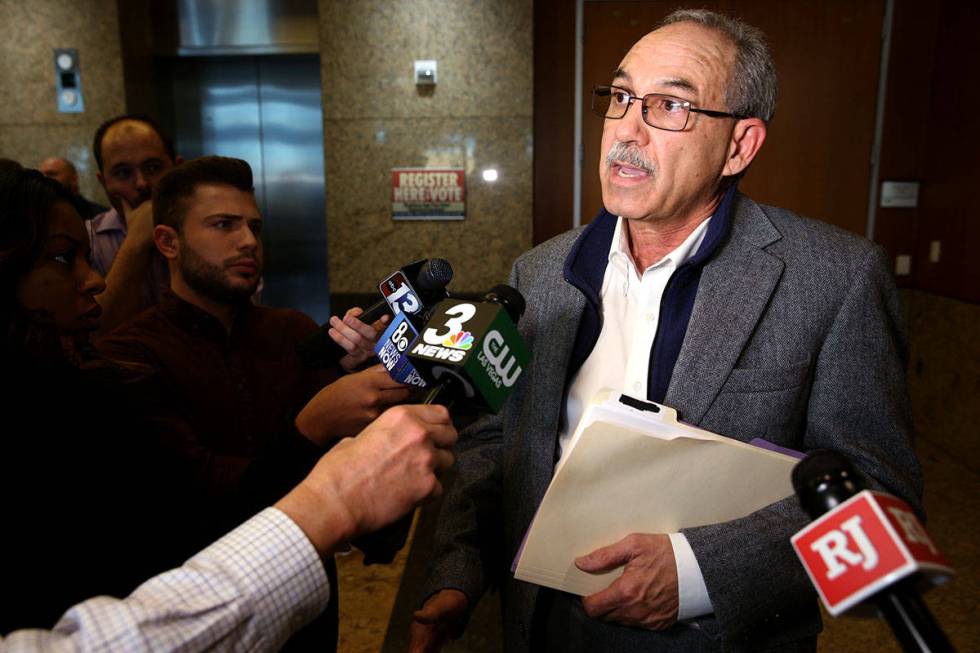EDITORIAL: CCEA wants higher taxes for education. But it opposed CCSD’s reopening plan.

After demanding that schools stay closed, the teachers union wants a massive tax hike to raise money for public education. That’s going to be a tough sell — and it should be.
Earlier this month, the Clark County Education Association submitted around 200,000 signatures for two tax-hiking ballot measures. The petitions each need fewer than 100,000 signatures to qualify, so there’s a good chance that both have met the threshold. One measure would increase the sales tax by 1.5 percentage points, which would push the Clark County rate to 9.875 percent, one of the highest in the country. The other proposal would boost the top tier of the gaming tax by more than 44 percent, from 6.75 percent to 9.75 percent.
In January, the union claimed these increases were necessary to “finally fix the funding problems our students face every day.” Keep in mind that this proposal comes just five years after then-Gov. Brian Sandoval signed the biggest tax hike in state history in order to boost public school spending. It wasn’t enough. It never is.
As is typical for such proposals from the entrenched education establishment, there’s no concurrent guarantee that taxpayers will get anything at all for their increased contributions. If the union hopes to persuade Nevadans to go along with this money grab, it might be a good idea for advocates to at least pay lip service to potential advances in test scores and other achievement benchmarks. Instead, crickets abound.
But perhaps the biggest hurdle for the two ballot proposals is the raging pandemic. Union leaders conceived these initiatives before the coronavirus hit the front pages in February and March. Since then, the economy has cratered — along with state and local tax revenues. Asking workers and businesses to swallow a $1.4 billion annual tax hike would be difficult during prosperous times. It becomes an even steeper peak to climb when employers — including many in the state’s dominant hospitality, gaming and tourism industries — teeter on the brink of collapse. (Full disclosure: The Review-Journal is owned by the family of Las Vegas Sands Corp. Chairman and CEO Sheldon Adelson).
Another potential barrier is the union’s reluctance to push for a reopening of Clark County schools. Data around the country shows the toll distance learning is taking on students academically. The Wall Street Journal reported last week that a recently released report from Renaissance Learning Inc., an online testing program used by districts to track student progress, found that closing campuses in the spring led children to start the current school year “significantly behind expectations in math and modesty behind in some grades in reading.” Anecdotal stories from beleaguered local parents paint the same picture. Another year of distance “learning” could be catastrophic. Most frightening of all are the low-income students who’ve faded into obscurity, unmoored from schools that offer an escape from a life of poverty.
If the union’s highest priority were “the children,” it would have demanded that schools reopen and increased those calls as states and other countries successfully and safely began a return to in-person education. That didn’t happen. The union opposed the Clark County School District’s thorough and cautious reopening plan.
Workers in virtually ever profession and economic sector — health care, construction, retail, gaming, hospitality — have managed the risks and been showing up to work for months. Yet largely because of union resistance, schools remain closed in Clark County and elsewhere, potentially stunting the academic growth and long-term prospects for a generation of students, particularly the most disadvantaged.
That’s worthwhile context when considering these initiatives. For too long, proponents of the education status quo have elevated the priorities of adults over the needs of students. That problem will only be exacerbated if Nevadans agree to further open their bank accounts to the same people who currently insist on keeping schools closed despite the knowledge that such a strategy continues to fail a great many vulnerable students.